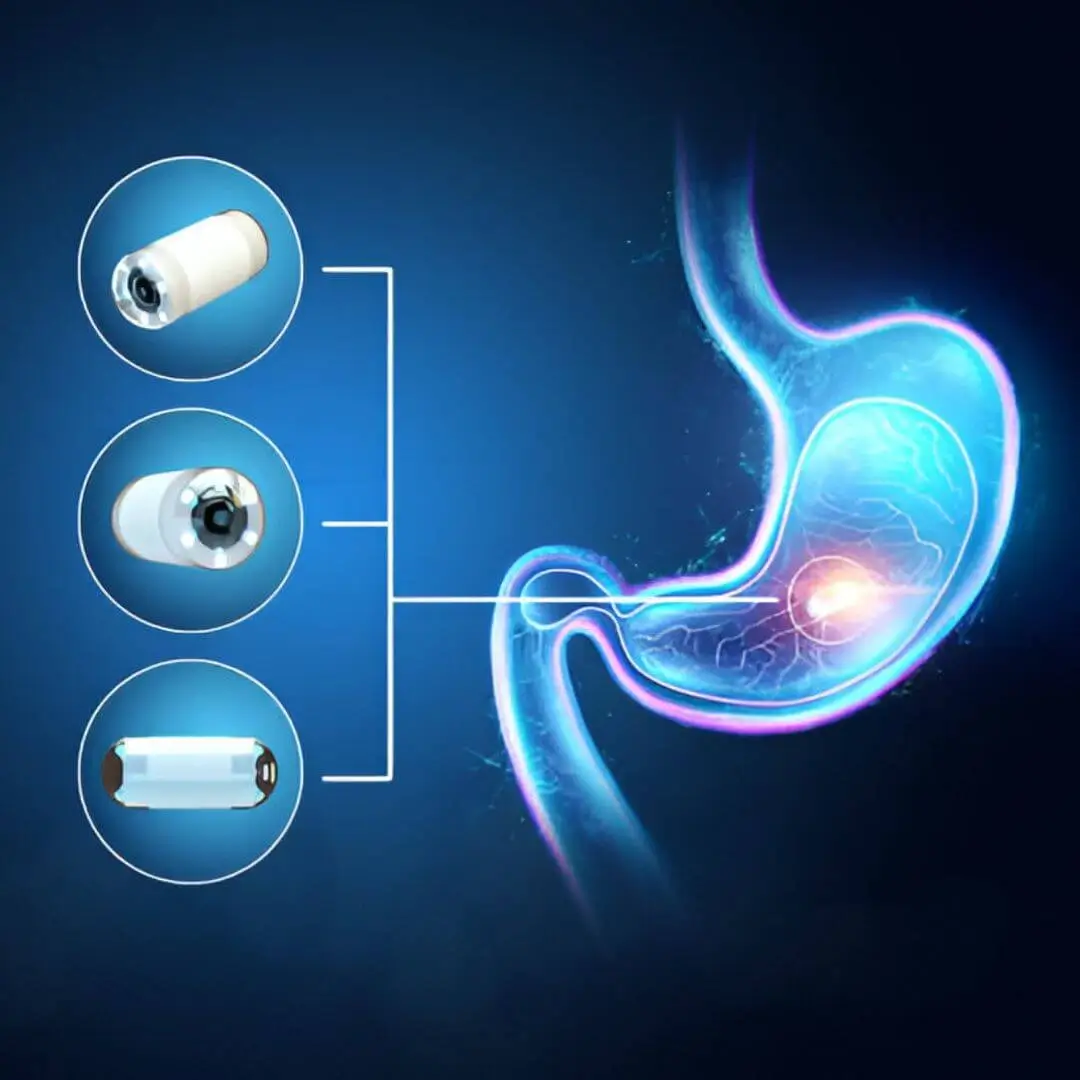Frequently Asked Questions
Capsule endoscopy is a diagnostic procedure that uses a tiny wireless camera inside a pill to capture images of your digestive tract, especially the small intestine.
It is used to evaluate unexplained gastrointestinal bleeding, Crohn's disease, tumors, and malabsorption disorders.
You may be asked to fast for 12 hours before the procedure and may need to take a laxative to clear your intestines.
No, the procedure is painless. You simply swallow the capsule, and it passes naturally through your digestive system.
The capsule takes about 8 hours to pass through your digestive system, during which images are recorded.
You’ll typically be able to drink clear fluids after 2 hours and eat a light meal after 4 hours unless instructed otherwise.
The main risk is capsule retention in cases of intestinal narrowing, which might require surgical removal.
No, each capsule is used only once and is disposable.
No sedation is required since it is non-invasive and does not involve scopes.
Results are usually available within a few days after the data from the capsule is analyzed.
The capsule is passed naturally in your stool and flushed away.
Contact your doctor if the capsule does not pass within a few days; imaging may be needed to locate it.
Yes, it can be used in children, but your doctor will assess suitability.
Yes, you can usually go about normal activities while wearing the recording device.
No, you won’t feel it; it moves naturally with digestion.
No, avoid MRI until the capsule has passed completely from your body.
Inform your doctor about all medications. Some may need to be stopped temporarily.
It provides highly detailed images of the small intestine, making it accurate for detecting hidden abnormalities.
Coverage varies by provider and reason for the test. Check with your insurance company.
Wear loose-fitting clothes to accommodate the sensor belt or recorder device.

